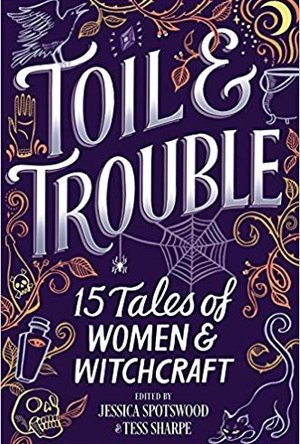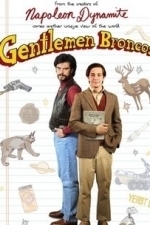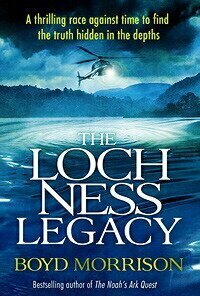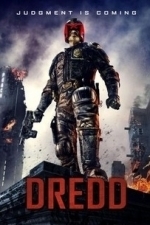Search
Search results
Hazel (1853 KP) rated Divergent Thinking: YA Authors on Veronica Roth's Divergent Trilogy in Books
Dec 17, 2018
My rating: 4.5
<i>This eBook was provided by the publisher via NetGalley in exchange for an honest review</i>
For fans of Veronica Roth’s <i>Divergent</i> series here is a book that delves deeper into the trilogy. Commonly referred to as “the next <i>Hunger Games</i>” Leah Wilson has compiled together several essays that treat <i>Divergent</i> in its own right. <i>Divergent Thinking: YA Authors on Veronica Roth’s Divergent Trilogy</i> is full of a variety of ideas each expressed by a different well-known author.
Although <i>Divergent</i> is a dystopian novel leaning heavily towards the science fiction genre, the essays in this book compare the storyline and its components with reality. Through the complex heroine, Tris, the reader learns about family values, friendships, secrets and lies – all of these things being something that is experienced within everyone’s lives.
What are really interesting are the various authors’ perceptions on Roth’s use of factions - from this stem essays on personality types, life choices, psychology, bravery and science. <i>Divergent Thinking</i> is full of thought-provoking ideas that many readers would not have considered when first reading the trilogy. These authors make the reader think more about their own lives in relation to Tris and Tobias’. Most importantly Wilson’s compilation draws attention to the amount of research Roth must have done in order to create a dystopian future.
What is particularly good about this book is that the authors treat the characters as people in their own right with their own personalities and opinions. Instead of criticizing the way Roth has portrayed someone they comment instead on how they disagree with a particular characters thought or action. This proves, in a way, the brilliance behind Roth’s writing. Through reading <i>Divergent</i> we are not only staring at a page of writing, we are drawn directly into the storyline.
To be able to appreciate the essays included in this book readers need to already have a good understanding of the original novels, in other words read the trilogy first. There are also many spoilers for those who have not yet reached the final installment, <i>Allegiant</i>. It would also help to be a fan of <i>Divergent</i> as all these authors clearly are. Overall this is such a fascinating read. Some chapters are more interesting than others but that will also depend on the reader. If you prefer science and facts there are essays in here for you, likewise if you prefer a more personal touch there is something for you too.
<i>This eBook was provided by the publisher via NetGalley in exchange for an honest review</i>
For fans of Veronica Roth’s <i>Divergent</i> series here is a book that delves deeper into the trilogy. Commonly referred to as “the next <i>Hunger Games</i>” Leah Wilson has compiled together several essays that treat <i>Divergent</i> in its own right. <i>Divergent Thinking: YA Authors on Veronica Roth’s Divergent Trilogy</i> is full of a variety of ideas each expressed by a different well-known author.
Although <i>Divergent</i> is a dystopian novel leaning heavily towards the science fiction genre, the essays in this book compare the storyline and its components with reality. Through the complex heroine, Tris, the reader learns about family values, friendships, secrets and lies – all of these things being something that is experienced within everyone’s lives.
What are really interesting are the various authors’ perceptions on Roth’s use of factions - from this stem essays on personality types, life choices, psychology, bravery and science. <i>Divergent Thinking</i> is full of thought-provoking ideas that many readers would not have considered when first reading the trilogy. These authors make the reader think more about their own lives in relation to Tris and Tobias’. Most importantly Wilson’s compilation draws attention to the amount of research Roth must have done in order to create a dystopian future.
What is particularly good about this book is that the authors treat the characters as people in their own right with their own personalities and opinions. Instead of criticizing the way Roth has portrayed someone they comment instead on how they disagree with a particular characters thought or action. This proves, in a way, the brilliance behind Roth’s writing. Through reading <i>Divergent</i> we are not only staring at a page of writing, we are drawn directly into the storyline.
To be able to appreciate the essays included in this book readers need to already have a good understanding of the original novels, in other words read the trilogy first. There are also many spoilers for those who have not yet reached the final installment, <i>Allegiant</i>. It would also help to be a fan of <i>Divergent</i> as all these authors clearly are. Overall this is such a fascinating read. Some chapters are more interesting than others but that will also depend on the reader. If you prefer science and facts there are essays in here for you, likewise if you prefer a more personal touch there is something for you too.
Goddess in the Stacks (553 KP) rated Toil & Trouble: 15 Tales of Women & Witchcraft in Books
Dec 22, 2018
Toil & Trouble was a much-hyped anthology of YA stories, and I think it lived up to that hype. I really enjoyed almost every story in this book - only one or two of them were less than awesome. And they still weren't bad! Anthologies like this keep introducing me to yet more authors that I want to read, and just keep growing my TBR list! Some of the authors in this book I was familiar with; while I hadn't read her work yet, I met Zoraida Córdova at the Baltimore Book Festival, and she was amazing. I'm familiar with Brandy Colbert's work, and have not yet read Anna-Marie McLemore but desperately want to, and her story in this work (Love Spell) only increases that need.
I read this book just before Halloween, and it was a perfect choice. I'm not a fan of actual horror novels, which seem to be what everyone else is reading this time of year. Give me my strong witchy women! The stories in this book are all young women - teens to early adulthood - learning to rely on themselves. They embrace what family traditions mean to them, or break free of them entirely if they're the wrong path. They break social taboos and fall in love where they will. They FIGHT for what they want.
I think my favorite story in this book involved a woman whose powers had been bound by her coven until she was old enough to use them wisely, but had to watch her father die in an accident when she could have healed him if she'd had access to her magic. She went to an ancient place of power in the mountains and broke the binding, horrifying her coven. The story is actually about her defying them further in refusing her destined soul mate for the girl she's been in love with since she was a child, and Fate's punishment for that. The two girls fighting for each other and for their own magic was amazing. (The Heart in Her Hands, Tess Sharpe.) Unfortunately it doesn't look like it's part of a larger story, I was hoping for more in that world!
As far as I can tell, only one of the stories is part of something larger - I'm pretty sure Zoraida Córdova's story is part of her Brooklyn Brujas world. Other than that, they all appear to be standalones, which is a little sad as I'd like to see more of many of these worlds!
Toil & Trouble is an outstanding anthology of magical women, and I loved it.
You can find all my reviews at http://goddessinthestacks.com
I read this book just before Halloween, and it was a perfect choice. I'm not a fan of actual horror novels, which seem to be what everyone else is reading this time of year. Give me my strong witchy women! The stories in this book are all young women - teens to early adulthood - learning to rely on themselves. They embrace what family traditions mean to them, or break free of them entirely if they're the wrong path. They break social taboos and fall in love where they will. They FIGHT for what they want.
I think my favorite story in this book involved a woman whose powers had been bound by her coven until she was old enough to use them wisely, but had to watch her father die in an accident when she could have healed him if she'd had access to her magic. She went to an ancient place of power in the mountains and broke the binding, horrifying her coven. The story is actually about her defying them further in refusing her destined soul mate for the girl she's been in love with since she was a child, and Fate's punishment for that. The two girls fighting for each other and for their own magic was amazing. (The Heart in Her Hands, Tess Sharpe.) Unfortunately it doesn't look like it's part of a larger story, I was hoping for more in that world!
As far as I can tell, only one of the stories is part of something larger - I'm pretty sure Zoraida Córdova's story is part of her Brooklyn Brujas world. Other than that, they all appear to be standalones, which is a little sad as I'd like to see more of many of these worlds!
Toil & Trouble is an outstanding anthology of magical women, and I loved it.
You can find all my reviews at http://goddessinthestacks.com
TacoDave (3982 KP) rated Gentlemen Broncos (2009) in Movies
Oct 30, 2019 (Updated Oct 30, 2019)
dry humor (2 more)
great actors
unique feel
I love this weird movie.
I love Gentelmen Broncos. Full stop.
I saw it for the first time in a theater where I was the only customer, and I was a bit wary of watching a comedy by myself, but it ended up being a great experience. This film is written and directed by the same people who made Napoleon Dynamite and Nacho Libre, which should let you know out of the gate that it is a bit abnormal.
The plot centers around a teenage boy named Benjamin who writes science fiction novels. Benjamin is headed off to a writing camp for home-schooled kids. In the bus on the way to camp he meets some other interesting teens and becomes fast friends with a few of them.
Once at the writing camp, he discovers that his favorite author - Ronald Chevalier (played by the hilarious Jemaine Clement) - will be judging everyone's writing. Overjoyed by this news, Benjamin submits his "best" book "Yeast Lords" into the competition. But it seems that things are not what they seem, because Chevalier has a bad case of writer's block, so he steals the plot of "Yeast Lords" and turns it into a new novel that keeps some elements, but destroys others.
Will Benjamin be able to prove a famous author stole his story? Can Benjamin and his friends film their own version of "Yeast Lords" and make a successful movie out of it? Can Benjamin kiss a girl without puking?
Interspersed with the regular scenes of the movie are scenes from the story "Yeast Lords" where Sam Rockwell (amazing, as always) plays the hero Bronco. These scenes morph and shift over the course of the movie as Bronco turns from a manly, tough hero into an effeminate oddball once Chevalier rewrites the story. Watching this transition is fascinating and hilarious.
And interspersed between everything else are oddball character moments that don't add to the plot, but are quirky and funny.
I'll admit that this movie isn't for everyone. It is weird. Some of the humor is so dry you need a drink afterwards. But for my sense of humor, it was dead-on. I have watched it many times, I own it on Blu-ray, and I show it to friends.
Give the trailer a try and see if it is your cup of tea. You'll either hate it (and curse me), or you'll love it and become a fan.
I saw it for the first time in a theater where I was the only customer, and I was a bit wary of watching a comedy by myself, but it ended up being a great experience. This film is written and directed by the same people who made Napoleon Dynamite and Nacho Libre, which should let you know out of the gate that it is a bit abnormal.
The plot centers around a teenage boy named Benjamin who writes science fiction novels. Benjamin is headed off to a writing camp for home-schooled kids. In the bus on the way to camp he meets some other interesting teens and becomes fast friends with a few of them.
Once at the writing camp, he discovers that his favorite author - Ronald Chevalier (played by the hilarious Jemaine Clement) - will be judging everyone's writing. Overjoyed by this news, Benjamin submits his "best" book "Yeast Lords" into the competition. But it seems that things are not what they seem, because Chevalier has a bad case of writer's block, so he steals the plot of "Yeast Lords" and turns it into a new novel that keeps some elements, but destroys others.
Will Benjamin be able to prove a famous author stole his story? Can Benjamin and his friends film their own version of "Yeast Lords" and make a successful movie out of it? Can Benjamin kiss a girl without puking?
Interspersed with the regular scenes of the movie are scenes from the story "Yeast Lords" where Sam Rockwell (amazing, as always) plays the hero Bronco. These scenes morph and shift over the course of the movie as Bronco turns from a manly, tough hero into an effeminate oddball once Chevalier rewrites the story. Watching this transition is fascinating and hilarious.
And interspersed between everything else are oddball character moments that don't add to the plot, but are quirky and funny.
I'll admit that this movie isn't for everyone. It is weird. Some of the humor is so dry you need a drink afterwards. But for my sense of humor, it was dead-on. I have watched it many times, I own it on Blu-ray, and I show it to friends.
Give the trailer a try and see if it is your cup of tea. You'll either hate it (and curse me), or you'll love it and become a fan.
Phil Leader (619 KP) rated The Loch Ness Legacy (Tyler Locke #4) in Books
Nov 20, 2019
When Tyler Locke foils an attack on a summit of Middle Eastern leaders at the Eiffel Tower he suspects there is more going on than meets the eye. He is soon proved correct as delegates at the summit start to die of a mysterious disease and an old enemy breaks out of prison bent on revenge. In a race for survival Locke and his friends must find out the truth and prevent all out war.
This book immediately gripped me. I have picked up many adventure thriller type books from many authors and few have impressed me. However Boyd Morrison manages to avoid the usual pitfalls. His characters are likeable and share realistic dialogue and act according to their motivations - even the main villain who is just ever so slightly over the top but still manages to be realistic as a character.
The action scenes - and there are plenty featuring more chases and fight scenes than a whole franchise of movies - are extremely well handled. People tire during fight scenes, nobody is a crack shot with a gun, injuries are realistic.
The plot cracks along as Locke and his team uncover the secrets one at a time. There are clues to solve and the whole time they are racing to beat the terrorists who always seem to be one step ahead.
I feel I must make special mention of the dialogue of the English and Scottish characters. A lot of American authors tend to assume everyone in the UK is either a 'cor blimey guv'nor' cockney or an 'I say old chap' aristocrat and so to my ears the dialogue always sounds phoney. Morrison does not fall into this trap and that really did enhance the immersion in the story.
Yes ultimately this is a hunt for the Loch Ness Monster but really that's just a McGuffin to drive the plot, and an ingenious one at that. I'm not aware of anyone else using Nessie in this kind of book and Morrison handles it well.
Overall a terrific book, well worth a read and would make a terrific holiday book. I've already got the first Tyle Locke novel lined up to read and am looking forward to it immensely. Morrison has immediately become on of my favourite authors. I noticed that he is credited as co-writer on the latest Clive Cussler Oregon Files book (Piranha) and will need to read that too, I suspect that he will inject some energy into the franchise and is a good choice as this book reads like one of Cussler's first novels - in fact I'd say even better.
This book immediately gripped me. I have picked up many adventure thriller type books from many authors and few have impressed me. However Boyd Morrison manages to avoid the usual pitfalls. His characters are likeable and share realistic dialogue and act according to their motivations - even the main villain who is just ever so slightly over the top but still manages to be realistic as a character.
The action scenes - and there are plenty featuring more chases and fight scenes than a whole franchise of movies - are extremely well handled. People tire during fight scenes, nobody is a crack shot with a gun, injuries are realistic.
The plot cracks along as Locke and his team uncover the secrets one at a time. There are clues to solve and the whole time they are racing to beat the terrorists who always seem to be one step ahead.
I feel I must make special mention of the dialogue of the English and Scottish characters. A lot of American authors tend to assume everyone in the UK is either a 'cor blimey guv'nor' cockney or an 'I say old chap' aristocrat and so to my ears the dialogue always sounds phoney. Morrison does not fall into this trap and that really did enhance the immersion in the story.
Yes ultimately this is a hunt for the Loch Ness Monster but really that's just a McGuffin to drive the plot, and an ingenious one at that. I'm not aware of anyone else using Nessie in this kind of book and Morrison handles it well.
Overall a terrific book, well worth a read and would make a terrific holiday book. I've already got the first Tyle Locke novel lined up to read and am looking forward to it immensely. Morrison has immediately become on of my favourite authors. I noticed that he is credited as co-writer on the latest Clive Cussler Oregon Files book (Piranha) and will need to read that too, I suspect that he will inject some energy into the franchise and is a good choice as this book reads like one of Cussler's first novels - in fact I'd say even better.
Sophia (Bookwyrming Thoughts) (530 KP) rated The Heartbreakers (The Heartbreakers Chronicles, #1) in Books
Jan 23, 2020
<h2><em><strong>The Heartbreakers</strong></em><strong> by Ali Novak has got to be one of the cutest novels I've read in 2018.</strong></h2>
Wow. Way to expose that this review is months late, Sophia.
I adored every moment of reading and want more from Novak because she brought out nearly <em>all</em> the feels. Plus if I didn't have final projects or work at the time, I'm pretty sure I would have finished this in one sitting and be a sad bookwyrm right after.
<h3>The relationships are A+! 😍</h3>
From the very beginning, the band members and Stella have a great friendship and Novak does a phenomenal job showing that. They got along well quickly and while they had their disputes here and there, it's obvious they all enjoyed hanging out and spending time together.
I also loved the sibling relationship between Stella and her siblings. Since her sister, Cara found out she had cancer, Stella has been making the effort to stay with her sister as much as she can and that made me cry on the inside. This is one of the struggles that Stella deals with throughout the novel: how can she be with Cara and make the most of the time they have left while creating a life for herself as well?
<h3>Lots of cheese and insta-love, but we're not complaining.</h3>
I hate cheese and insta-love, but I had no issues with the massive amounts of them throughout <em>The Heartbreakers</em>. I found myself thoroughly enjoying the novel regardless of the tropes and cliches that I find myself trying to avoid often. The characters play pranks on each other often, which sometimes aggravate me personally in other books because they go too far, but I loved reading them. Plus I personally felt the pranks fit the characters' personalities and really added to the relationship value.
<h3>It's unrealistic but I don't think I cared.</h3>
I really don't think I cared because I was enjoying other aspects of the book and it kind of balanced everything out. And well... maybe my mood. I think I was reading way too much fantasy and got tired of that so I needed a good, fluffy AF contemporary novel to get me back on my reading toes. <em>The Heartbreakers</em> certainly delivered the fluffiness I needed.
<a href="https://bookwyrmingthoughts.com/the-heartbreakers-by-ali-novak/"; target="_blank">This review was originally posted on Bookwyrming Thoughts</a>
Wow. Way to expose that this review is months late, Sophia.
I adored every moment of reading and want more from Novak because she brought out nearly <em>all</em> the feels. Plus if I didn't have final projects or work at the time, I'm pretty sure I would have finished this in one sitting and be a sad bookwyrm right after.
<h3>The relationships are A+! 😍</h3>
From the very beginning, the band members and Stella have a great friendship and Novak does a phenomenal job showing that. They got along well quickly and while they had their disputes here and there, it's obvious they all enjoyed hanging out and spending time together.
I also loved the sibling relationship between Stella and her siblings. Since her sister, Cara found out she had cancer, Stella has been making the effort to stay with her sister as much as she can and that made me cry on the inside. This is one of the struggles that Stella deals with throughout the novel: how can she be with Cara and make the most of the time they have left while creating a life for herself as well?
<h3>Lots of cheese and insta-love, but we're not complaining.</h3>
I hate cheese and insta-love, but I had no issues with the massive amounts of them throughout <em>The Heartbreakers</em>. I found myself thoroughly enjoying the novel regardless of the tropes and cliches that I find myself trying to avoid often. The characters play pranks on each other often, which sometimes aggravate me personally in other books because they go too far, but I loved reading them. Plus I personally felt the pranks fit the characters' personalities and really added to the relationship value.
<h3>It's unrealistic but I don't think I cared.</h3>
I really don't think I cared because I was enjoying other aspects of the book and it kind of balanced everything out. And well... maybe my mood. I think I was reading way too much fantasy and got tired of that so I needed a good, fluffy AF contemporary novel to get me back on my reading toes. <em>The Heartbreakers</em> certainly delivered the fluffiness I needed.
<a href="https://bookwyrmingthoughts.com/the-heartbreakers-by-ali-novak/"; target="_blank">This review was originally posted on Bookwyrming Thoughts</a>
JT (287 KP) rated Dredd (2012) in Movies
Mar 10, 2020
From the opening slow motion bullet to the face and exit wound that leaves a spray of deep red across the screen, it’s clear to see that this Dredd reboot is all about eradicating the memory of Stallone. It also does its best to stay true to the graphic novels in which this Judge Dredd leaves his helmet on for the entirety.
Karl Urban steps into the boots for this outing and complete with grizzled voice that echoes of Clint Eastwood’s Dirty Harry he goes up against female villain Ma-Ma (Headey) who is as nasty as she is ruthless.
Mega City one, set on the East Coast and running from Boston to Washington DC is the Judges stomping ground and its being overrun by a new drug called SLO-MO in which users experience reality at a fraction of the speed. When a routine homicide leads Dredd and rookie Judge Cassandra Anderson (Thirlby) to The Peach Trees, a 200-storey slum tower block (wait, another tower block?), they must fight their way through the scum to get to the top and bring down the prostitute turned drug lord.
The film is certainly grittier and bloodier than its almost comic predecessor, and director Travis does not shy away from this.
An early encounter in which Dredd and Anderson infiltrate a drug house is slowed right down, maybe in some way to mirror the feeling the SLO-MO drug has on its users. Bullets and blood fly as the casualties and body count rise significantly, Dredd quips the occasional one liner with deadpan expression “negotiation’s over. Sentence is death.”
Those that saw The Raid would have been mesmerized by the action which was none stop from start to finish, sadly Dredd doesn’t live up to those high expectations but does its best to stay with mainstream carnage, of which there is plenty to satisfy.
It’s all about the facial expression
Thirlby’s psychic abilities prove useful but almost disappointing that she can second guess her opponents, a mutant, she’d probably fit in well with the X-Men. She’s the sense of reason to Dredd’s brute force, although most of the time he’s right in what he does, after all he is the law. The film is stripped back, humour is used when needed, and the action set pieces are exceptional. Urban a long time supporting actor now gets a chance to be front and centre in a franchise that can really go places.
Karl Urban steps into the boots for this outing and complete with grizzled voice that echoes of Clint Eastwood’s Dirty Harry he goes up against female villain Ma-Ma (Headey) who is as nasty as she is ruthless.
Mega City one, set on the East Coast and running from Boston to Washington DC is the Judges stomping ground and its being overrun by a new drug called SLO-MO in which users experience reality at a fraction of the speed. When a routine homicide leads Dredd and rookie Judge Cassandra Anderson (Thirlby) to The Peach Trees, a 200-storey slum tower block (wait, another tower block?), they must fight their way through the scum to get to the top and bring down the prostitute turned drug lord.
The film is certainly grittier and bloodier than its almost comic predecessor, and director Travis does not shy away from this.
An early encounter in which Dredd and Anderson infiltrate a drug house is slowed right down, maybe in some way to mirror the feeling the SLO-MO drug has on its users. Bullets and blood fly as the casualties and body count rise significantly, Dredd quips the occasional one liner with deadpan expression “negotiation’s over. Sentence is death.”
Those that saw The Raid would have been mesmerized by the action which was none stop from start to finish, sadly Dredd doesn’t live up to those high expectations but does its best to stay with mainstream carnage, of which there is plenty to satisfy.
It’s all about the facial expression
Thirlby’s psychic abilities prove useful but almost disappointing that she can second guess her opponents, a mutant, she’d probably fit in well with the X-Men. She’s the sense of reason to Dredd’s brute force, although most of the time he’s right in what he does, after all he is the law. The film is stripped back, humour is used when needed, and the action set pieces are exceptional. Urban a long time supporting actor now gets a chance to be front and centre in a franchise that can really go places.

Star Wars Insider
Entertainment and Magazines & Newspapers
App
Check out the new look Star Wars Insider! The official Star Wars Insider magazine is your...
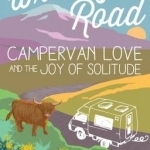
Writing on the Road: Campervan Love and the Joy of Solitude
Book
This book is not just funny (or sad) stories of campervan trips in Scotland; it is not just 'Zen and...

The War of the Worlds by H. G. Wells
Podcast
Extraterrestrial invasion, the earth taken over by omniscient intelligences from Mars, the whole of...
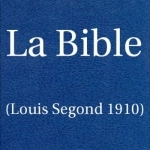
La Bible(Louis Segond 1910) French Bible
Reference
App
This application contains French Bible(Version Louis Segond 1910). Cette application contient la...

